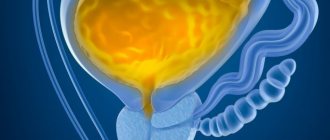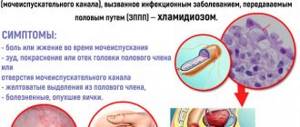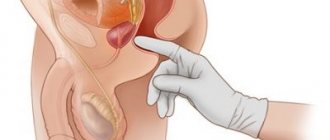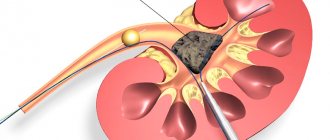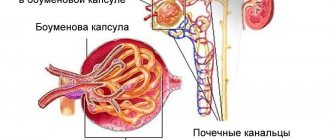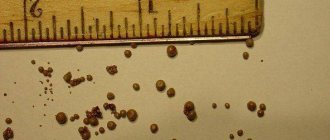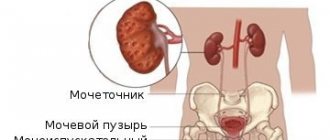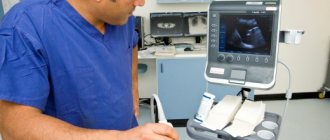Cystalgia is a common urological disease that is often detected in women of reproductive age. This pathology is characterized by urination disorders, most often accompanied by pain.
With a disease such as cystalgia, symptoms in women may be different, but there are no signs of an inflammatory process.
If measures are not taken to treat the disease, it becomes chronic and provokes the development of various complications.
Cystalgia
Women should know what cystalgia is and what consequences this bladder pathology can lead to. Most often, the disease affects women aged 20-50 years, but it is possible that it can be detected in men and children.
With cystalgia, the patient complains of pain in the lower abdomen and problems with urination. However, during the examination, no signs of an inflammatory process or pathological changes in the composition of urine are observed.
The disease is characterized by a long course, provokes the development of neurotic conditions and has a negative impact on a woman’s life.
Most often, exacerbations of cystalgia are seasonal, and symptoms are most pronounced in the autumn-winter period.
Set of measures
Treatment for cystalgia is complex and several specialists treat this patient:
- urologist;
- urogynecologist;
- neurologist;
- psychotherapist.
First of all, they look for the cause that gave rise to this disease. All inflammatory processes in the pelvic area are eliminated.
In addition to the fact that the patient will have personal sessions with a psychologist, he may be prescribed restorative therapy and sedatives.
Congestion in the pelvic area is excluded; painkillers and antispasmodics can be prescribed.
If ovarian function decreases or endometriosis is detected, hormone replacement therapy is prescribed. In addition, blockades with novocaine and corticosteroid drugs can be used.
If a woman has fibroids or erosion of the cervix, when this problem is removed, the symptoms of the disease disappear. With reduced bladder tone, estrogens and androgens are prescribed if the tone is high.
Vitamins must be prescribed; in old age this may be Estriol.
To correct the psycho-emotional state, the doctor may prescribe medications:
- sedatives;
- neuroleptics;
- tranquilizers;
- antispasmodics.
Alcohol intake is also excluded, and a diet is prescribed that does not contain spicy, salty or spicy foods, so as not to irritate the mucous membrane of the bladder and its cervical canal.
The treatment is very long, with frequent crises. The doctor may even prescribe treatment at a psychoneurological clinic, in view of the fact that the cause of the illness could be mental trauma.
Sometimes, when all inflammatory diseases of the pelvis are excluded and sanatorium-resort treatment is completed, the problem disappears.
- Painful urination
- Feeling of incomplete emptying of the bladder
- Small amount of urine excreted
- Perineal pain
- Urinary dysfunction
- Discomfort in the urethra
- Aching bladder pain
- Straining while urinating
Cystalgia is a manifestation of a painful urge to urinate, despite the fact that urine tests are normal. It is often a consequence of gynecological problems or abnormal ovarian function that accompanies bladder hypersensitivity. Pathology includes a whole range of uncomfortable sensations. Characterized by frequent trips to the toilet, accompanied by dull or sharp pain in the lower abdomen.
- Etiology
- Symptoms
- Diagnostics
- Treatment
- Prevention
Women with a weak psyche usually react sharply to changes in any processes in their body, are pre-conceived that something should hurt them, and the subconscious itself gives rise to the formation of various unhealthy actions in the body in general and cystalgia in particular. Gynecologists say that women during menopause, or more precisely at its initial stage, due to changes in the body, fall into and often show signs of cystalgia.
Causes of cystalgia in women
Cystalgia in women is a pathology in which innervation is disrupted and the muscle tissue of the bladder is affected. The consequence of pathological changes is swelling of the organ and disruption of its normal functioning.
In the absence of effective therapy, there is a high risk that changes in the bladder may become irreversible.
Experts identify some reasons that can provoke the development of pathology:
- Diseases of a gynecological nature. Cystalgia can be caused by various inflammatory pathologies and neoplasms. In addition, such a disease can be a consequence of endometriosis, in which endometrial cells enter the abdominal cavity.
- Emotional stress, stress and sexual disorders. In this case, women are diagnosed with “psychosomatic cystalgia.” Dissatisfaction with sexual life leads to the disruption of blood circulation in the pelvic organs and the development of pain.
- Changes in hormonal levels, accompanied by disruption of the production of certain hormones. This pathological condition can develop with various endocrine pathologies and with the onset of menopause. An imbalance of hormones in the body causes thinning of the bladder walls.
- Allergic reactions. Pathology can be observed in women who have increased sensitivity of the immune system. When some endotoxins enter the blood, swelling of the mucous membrane and deep layers of the tissues of the small pelvis develops, which is accompanied by a disorder of urine excretion.
The development of cystalgia and its exacerbation is determined by both external and internal provoking factors. Among them are:
- period of pregnancy and menopause;
- abortions;
- disruptions of the menstrual cycle;
- consumption of smoked, salty and spicy foods;
- wearing clothes that are too tight and constricting;
- decreased tone of the pelvic muscles;
- prolonged hypothermia.
Most often, cystalgia is detected in those women who lead a sedentary lifestyle and have congenital abnormalities in the structure of the genitourinary system.
Where are the origins of the violation?
The causes of the disease are very diverse and can be both psychological in nature and result from disease factors.
In order to make a correct diagnosis, it is necessary to study all the threads that can lead to this problem. Therefore, the help of a psychologist is very important in this regard.
The causes of this disease may be:
- gynecological problems;
- tumors inside the pelvis;
- prolapse of the walls or prolapse of the vagina;
- hormonal changes in the body (menopause, pregnancy);
- sexual problems, dissatisfaction;
- allergic manifestations of the bladder outlet to dairy or other products;
- disruption of the flow of blood and lymph in the pelvis;
- operations, including abortions;
- failure to perform their functions;
- congenital feature, structure;
- hormonal shift;
- immunosuppression.
Symptoms
With cystalgia, women experience symptoms that are similar to manifestations of inflammatory pathologies of the pelvic organs. Most often they appear during the daytime when urinating, and at night there is no discomfort.
A woman can be suspected of having cystalgia based on the following symptoms:
- aching pain in the bladder;
- feeling of incomplete emptying;
- discomfort in the urethra;
- violation of urinary frequency.
When urinating, a small amount of fluid is released, and for complete emptying the woman has to strain her muscles quite hard. The result of this is the appearance of short-term pain after visiting the toilet.
A feature of cystalgia is blurred symptoms. The woman is bothered by mild aching pain that arises and disappears on its own throughout the day.
Typically, this pathology does not manifest itself in the summer, and an exacerbation is noted in the cold season. Cystalgia is a disease of the bladder, which is characterized by a long course, and periods of remission are replaced by exacerbations.
Complications and consequences
If the disease is not treated, complications such as bladder and kidney damage may occur.
Bladder neurosis disrupts work in all areas of a person’s life. There is a decrease in performance, frequent stress, and increased irritability when communicating with other people. Psychogenic delay can lead to rupture of the bladder or kidney organs, as a result of which experts recommend that at the first symptom of cystalgia, seek advice and prescribe effective therapy. Possible complications include:
- swelling of the genitals;
- chronic inflammatory processes;
- prolapse of the vaginal walls.
Bladder diseases in women occupy a special place in urological practice. Due to the anatomical features of the bladder, women are more likely to have malformations and anomalies in the development of the bladder, as well as its inflammatory diseases. In addition, there are exclusively female diseases of the bladder - these are cystalgia, genitourinary fistulas, polyps and others.
One of the typical female diseases of the bladder is cystalgia - a disease whose manifestations subjectively resemble acute, but with the same symptoms, cystalgia does not have inflammation of the bladder with purulent urine.
Cystalgia occurs as a result of an imbalance in the nervous and endocrine regulatory mechanisms in the bladder area.
Diagnostics
To make an accurate diagnosis and identify signs of cystalgia, the following methods can be used:
- Ultrasound of the pelvic organs;
- urodynamic study of the bladder;
- MRI, CT or radiography with contrast agent;
- cystoscopy;
- urethrocystography;
- diagnostic laparoscopy.
The specialist must conduct a full examination of the organs of the reproductive system and perform a urine test. Using instrumental and laboratory diagnostic methods, it is possible to assess the functioning of nearby internal organs.
The results of an ultrasound scan of the uterus and pelvic organs are especially carefully studied, and the identified symptoms are also assessed.
Treatment
For a disease such as cystalgia, treatment must begin immediately after diagnosis.
The patient is selected for complex therapy, which includes the use of medications, traditional medicine and physiotherapy.
Drug treatment
If bladder cystalgia is caused by gynecological pathologies, treatment is aimed at eliminating them. For this purpose, anti-inflammatory drugs may be prescribed or surgery may be performed.
If an infection is detected, the woman is prescribed antibiotics of various groups.
In a situation where a woman develops cystalgia during menopause, treatment of the pathology begins with the use of hormonal agents.
During menopause, it is recommended to take medications whose action is aimed at replenishing the lack of estradiol. All medications are selected taking into account the specific symptoms and general condition of the patient.
To relieve pain, analgesics and antispasmodics are prescribed.
To normalize the psycho-emotional background and increase the body’s resistance to various external stimuli, sedatives, antipsychotics and tranquilizers are selected for the woman.
Traditional methods of therapy are recommended to be combined with taking medications to improve the functioning of the immune system and restore the genitourinary system. In case of hormonal imbalance, certain physical procedures may be prescribed.
The condition can be alleviated with the help of electrophoresis, laser therapy, acupuncture and acupressure. If indicated, novocaine blockades and corticosteroids can be used.
An important place in the treatment of cystalgia is given to therapeutic exercises, with its help it is possible to normalize blood circulation in the pelvis. In severe cases of pathology, surgical intervention such as laparoscopic ligation is performed.
Traditional methods
It is allowed to begin treatment with traditional medicine only after consultation with a specialist.
This is due to the fact that cystalgia is not a separate pathology, but a complex of symptoms indicating various disorders in the functioning of the genitourinary system.
It is possible to cope with the psychological aspect of such a disease with the help of herbal medicine. To relieve nervous tension, you can brew regular tea and add a small amount of lemon balm or mint to it.
Plants such as hops, motherwort and valerian have a calming effect.
To prepare a decoction of motherwort, you need to brew a tablespoon of plant material with a glass of boiling water, keep it in a water bath for at least 40 minutes, and then leave it to infuse for a while.
The healing agent must be filtered and drunk 1/3 glass before each meal.
Thermal procedures are considered an effective way to relieve pain. It is allowed to use a regular rubber or electric heating pad as a heat source.
You can heat salt, cereal or river sand, pour it into a tight cloth bag and apply it to the lower abdomen. The duration of such thermal procedures should not exceed 20 minutes.
Disease prevention
It is possible to prevent the development of cystalgia by following some recommendations:
- promptly treat inflammatory processes of the genital organs;
- adhere to a healthy lifestyle and give up bad habits;
- control your hormonal levels;
- review your diet and consume foods containing vitamins and other beneficial substances;
- do not self-medicate to avoid the development of dangerous complications.
Cystalgia is a urological pathology that is quite difficult to cope with therapeutic methods.
However, if you consult a specialist in a timely manner and follow all his instructions, the prognosis is quite favorable.
